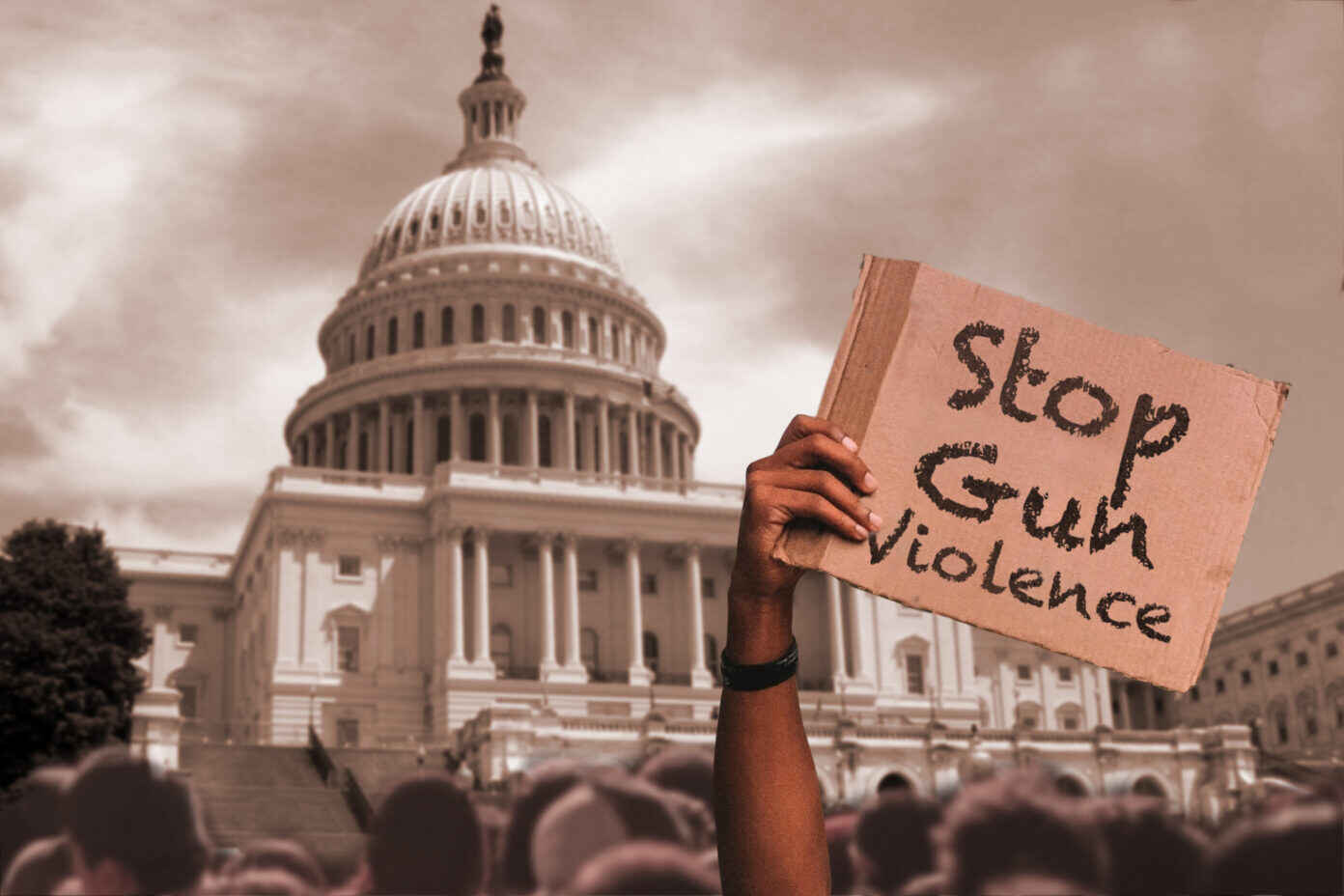Recent Gun Violence Prevention Steps at the State and Federal Level
May 3, 2023
Overview
On a single Saturday in April there were seven mass shootings across six states. This day holds the record for the most mass shootings in one day in 2023. Firearms are now the leading cause of premature death for children, having killed 4,357 children (ages 1-19 years old) in the United States in 2020 alone. Gun violence prevention is a vital step to protecting the public’s health. At the federal and state level, recent executive orders and legislation aim to support this goal.

On one single Saturday in April (April 15, 2023), there were seven mass shootings across six states. This day now holds the record for the most mass shootings in one day in 2023. One of those shootings included the highly publicized mass shooting in Alabama at a 16-year-old’s birthday party, which left four dead and 28 injured. According to Gun Violence Archive, which defines a mass shooting as an incident in which at least four victims are injured or killed (excluding a shooter killed or injured in the incident), there have been 160 mass shootings this year in a time period of less than four months. In short, America is averaging well over one mass shooting per day in 2023.
Recent mass shootings have resulted in legal actions to prevent gun violence in at least two states. Following a mass shooting in February 2023 at Michigan State University, the Michigan state legislature passed six bills intended to prevent gun violence. Michigan’s Governor Gretchen Whitmer signed the bills into law on April 13, 2023, and in doing so stated “we are turning our pain into purpose and honoring those we have lost with commonsense gun violence prevention legislation[.]” The package of bills will lower the cost of firearm safety devices and will establish universal background checks and safe storage requirements for firearms. On April 11, 2023, a little over two weeks after the tragic March 2023 Covenant School shooting in Nashville, Tennessee’s Governor Bill Lee issued an Executive Order to strengthen the background check process in the state.
At the federal level, following the Covenant School mass shooting, President Joe Biden noted that he had exhausted the “full extent” of his executive authority to address gun violence. Just two weeks prior to the mass shooting, President Biden had signed an Executive Order on March 14, 2023 intended to reduce gun violence, including directing the U.S. Attorney General to ensure “firearms sellers who do not realize they are required to run background checks under existing law, or who are willfully violating existing law, become compliant with background check requirements,” and requiring the U.S. Attorney General to publish, when permissible by law, “inspection reports” of firearm dealers cited for violation of federal firearm laws.
While gun violence has been deemed a public health crisis by such organizations as the American Medical Association and American Public Health Association, U.S. Rep. Adriano Espaillat (NY-13) introduced House Resolution 1165 on June 9, 2022, which would have officially declared “gun violence [] a public health crisis.” The house resolution suggested a coordinated whole-of-government effort to address gun violence, including urging the U.S. Surgeon General to issue a report on firearm injuries and gun violence prevention. In October 2022, U.S. Senator Alex Padilla (CA) and Rep. Barbara Lee (CA-13) sent a letter to the U.S. Department of Health and Human Services’ Secretary Xavier Becerra urging him to declare a public health emergency on gun violence in order to “fundamentally reframe how people perceive gun violence prevention efforts and recommit this nation to ending gun violence.”
Firearms are now the leading cause of premature death for children, having killed 4,357 children (ages 1-19 years old) in the U.S. in 2020 alone. Gun violence prevention is a vital step to protecting the public’s health. At the federal and state level, recent executive orders and legislation aim to support this goal.
This post written by Leila Barraza, JD, MPH, Senior Consultant, Network for Public Health Law – Western Region Office.
The Network for Public Health Law provides information and technical assistance on issues related to public health. The legal information and assistance provided in this document do not constitute legal advice or legal representation. For legal advice, readers should consult a lawyer in their state.
Support for the Network is provided by the Robert Wood Johnson Foundation (RWJF). The views expressed in this post do not represent the views of (and should not be attributed to) RWJF.
